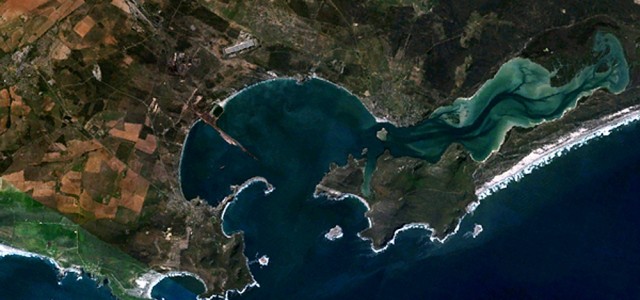2g@there Port & Corridor Cooperation works closely with many different public and private organisations in order to offer a wide range of service and solutions. One of the these organisation is DCMR (Environmental (Protection Agency Rijnmond), based in the Netherlands. Project Manager Roel van Loo from DCMR has been involved with the set-up of a regional Environmental Agency in Saldhana Bay, Western Cape in South Africa. In an interview he explains the importance and strategy on how to do business but at the same time protect the environment. In other words, sustainable development.
Can you explain the core objectives and structure of DCMR Milieudienst Rijnmond? DCMR is a Dutch government cooperation between one Province (South Holland) and 16 Municipalities, established in 1972 due to on-going pollution in the Rotterdam Rijnmond port region. Goal of DCMR Environmental Agency is to create and guard a safe and healthy environment for inhabitants and nature but keep the economically competitiveness sound as well. After a few decades, the Port of Rotterdam and DCMR have proved that these two goals can go hand in hand.
How are you able to unite economic growth, development, job creation and protecting the environment at the same time? What is the key to success?
The basic position of DCMR is always the following: “Every company that wants to operate in the Rotterdam Port region: we make it environmentally possible”. But of course within certain European Guidelines and overall environmental limits for the whole region. We work very close together with other actors, like the Port of Rotterdam. Another key for success is transparency; visit www.dcmr.nl and you can see online the air quality in the Rijnmond region.
You are not only focussing on the Rijnmond region, can you clarify the international strategy of DCMR?
We support economic development, but only if this is sustainable. DCMR has defined the concept of “sustainable” in measurable parameters and a concrete concept that can be implemented globally.
The more this sustainable strategy is implemented all over the world, the more you can speak of a “Level playing field”. Countries and ports can compete each other as tough as possible, but do not compete on environmental issues. To compensate the negative impacts on the environment are simply too costly for the next generations.
And in which countries and areas are you active?
At this moment Eastern Europe, Sultanate of Oman and South Africa. Sometimes there are one-time missions to other countries. DCMR operates upon request of the Rijnmond stakeholders, like the Port of Rotterdam, or the Dutch National Government as part of Government-to-Government cooperation.
DCMR has already contributed towards the sustainable development of Saldanha Bay in the Western Cape. What has been established so far?
The project is in a starting phase. The goal is to establish a regional Environmental Agency for a major industrial development. This concept is new to South Africa so this takes time, e.g. the legal situation has to be sorted out. But DCMR is not in a rush and we are more than willing to assist.
What are the lessons learned in terms of working in the South African environment?
South Africa is developing is a very fast pace. This is the time to establish strong, professional and transparent Environmental Agencies. This way the Environmental Agencies can guide and steer towards a sustainable economic development.
Do you have future projects in mind for South(ern) Africa?
That is up to the cooperating governments of course, but DCMR can assist with building agencies in the whole country. Or, maybe even better, we hope that other ports will simply copy our concept. It is not rocket science; just simply implement 9 environmental key measures.
What are the specific challenges you face in South(ern) Africa?
Nothing special to be honest, so far at least. You are constantly working with both the public and the private sector. How important are PPP’s and what is crucial to make this work, also seen in the light of sustainability? This issue is mostly related to the financing of the environmental agencies.
There is an internationally accepted principle called “the polluter pays”. This means in this case that the companies need to pay for the environmental agency. But this can obviously cause a problem when the agency decides to give a fine to a certain company for being non-compliant.
And if the agency decides to close a company…. will they keep paying the contribution to the agency? Difficult!
This is the reason why there needs to be a strong legal backing of the concept of environmental agencies. But the number of globally operating companies is growing every week. These companies have a strong believe in government compliance and consider costs for environment and safety and good investments. The better the company, the less costs for Government.
Great companies also invest in great consultants that assist in obtaining the permit and compliance monitoring. In our view it is definitely going in the right direction, as long as we keep focussing on the global Level Playing Field: India, Europe, USA, South Africa, China…All countries should protect the environment with the same standards.

